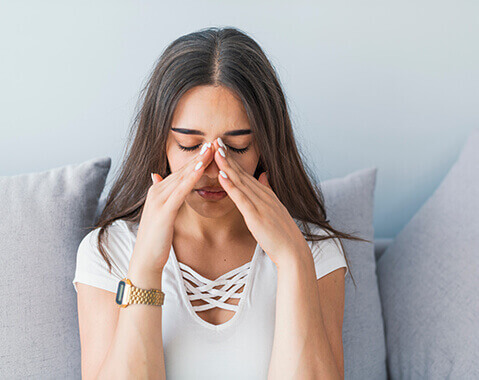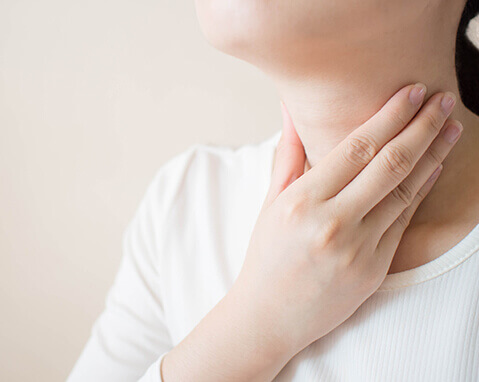Do you have difficulty getting a good night’s sleep? Are you overweight?
Although it seems unrelated, your weight can directly correlate to your ability to sleep through the night, especially if you suspect you may have sleep apnea. Sleep apnea is a condition that occurs when your breathing repeatedly stops while sleeping throughout the night.
Keep reading to learn more about sleep apnea and determine if losing weight can help those with this condition!
What is Sleep Apnea?
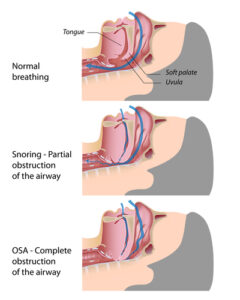
Sleep apnea is a sleep disorder that causes you to stop and start breathing while sleeping. The short pauses in breathing can occur up to 400 times per night.
There are different forms of sleep apnea. The most common is obstructive sleep apnea (OSA).
Obstructive Sleep Apnea
Obstructive sleep apnea occurs when the muscles in the back of your throat relax entirely or partially and block the upper airway for a few seconds as you sleep. Breathing often resumes when your brain detects your inability to breathe and signals your body to wake up so you can reopen the blocked airway. People with OSA may snore.
Other kinds of sleep apnea include central and mixed sleep apnea.
Weight Gain and Sleep Apnea
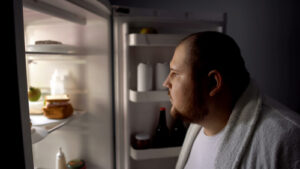
Not everyone with OSA has a weight problem. However, being overweight or obese considerably increases your risk. Obstructive sleep apnea affects over 20% of obese people and about 3% of people at regular weights.
As fat pockets due to excess weight grow around your throat and neck area, they narrow your breathing passageways. Narrowed airways are more prone to collapsing while sleeping.
Extra fat deposits on your abdomen can also compress the chest wall. As a result, you have decreased lung capacity, reducing airflow and making your upper airway more likely to collapse during sleep.
Health Complications of Untreated Sleep Apnea with Excess Weight
Uncontrolled sleep apnea and being overweight can lead to complications such as:
- Type 2 diabetes
- High blood pressure
- Adult asthma
- Acid reflux
- Impaired immune response
- Excessive daytime sleepiness and fatigue
- Heart disease, including stroke, coronary artery disease, irregular heart rhythm, heart attack, and heart failure
You can reduce your chances of these health complications by getting treatment if you have sleep apnea and losing weight if you’re overweight.
Sleep Apnea Treatment
Obstructive sleep apnea and weight loss should go hand in hand. Any sleep apnea treatment may lose effectiveness if you don’t lose weight.
That’s because the fat deposits in your neck, throat, and abdomen counter OSA treatment that aims to open your airway. At the same time, trying to lose weight without getting sleep apnea treatment may not be successful.
OSA interferes with your sleep quality. Poor sleep leads to excessive drowsiness and low energy levels in the daytime. When you’re too tired and feeling sleepy during the day, it may become more challenging to find the desire to work out.
In addition, sleep apnea causes you to produce significantly lower levels of the hormone leptin. Leptin makes you feel full.
Patients with sleep apnea also have higher levels of the hormone ghrelin, making them feel hungry. If you’re a patient with sleep apnea, your body will make you feel hungrier, causing you to consume more calories responsible for weight gain.
Sleep apnea treatment should include:
Weight Loss

By losing just 10 percent of your body fat, you can remove problematic extra fat on your neck and throat that causes your airway to collapse as you sleep. Losing weight also rids your chest wall of the pressure from excess fat deposits and reduces the chances of blocking your airway.
Additionally, weight loss helps with other conditions linked to sleep apnea. For example, losing weight could lower your blood pressure, minimize your risk of stroke, and improve heart disease.
Losing weight decreases the severity of OSA. But weight loss isn’t always easy.
It requires energy that you get from restful sleep. Sleep apnea causes fatigue and daytime sleepiness which contribute to low energy levels.
When you have untreated OSA, you may feel drowsy and exhausted at even the thought of exercise. OSA treatment allows you to have a better quality of sleep.
With a good night’s rest, you’ll find that you have the strength and drive to work out. Sleep apnea therapy also rebalances your hunger hormones, enabling you to maintain a healthy diet and not feel as hungry.
Once you attain the ideal weight with help from OSA treatment, you can significantly diminish your sleep apnea symptoms or even eliminate mild sleep apnea.
CPAP Device
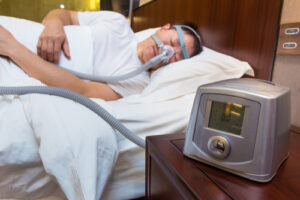
CPAP therapy is the gold standard when it comes to treatment for obstructive sleep apnea. A Continuous Positive Airway Pressure or CPAP device is a breathing machine connected to a mask you wear on your face throughout the night as you sleep.
The equipment pumps air into the tube, and the mask is worn on your face or nose, delivering positive pressure. This pressure keeps your airway open and helps manage OSA. As a result, you’ll have a restful night and more energy to exercise and lose weight, feeling and looking healthier.
Oral Appliances
An oral appliance ensures your tongue and lower jaw remain in a forward position. In this state, your tongue doesn’t block the airway even when the muscles completely relax while sleeping.
Keeping your tongue forward helps you breathe with more ease at night. Oral appliances are effective in treating mild to moderate sleep apnea.
Coblation
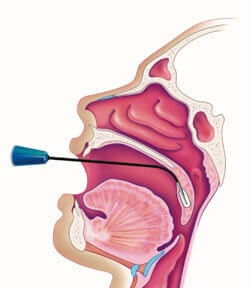
Coblation is a minimally invasive procedure for treating obstructive sleep apnea. Before the procedure, you’ll receive local anesthesia to prevent pain and keep you comfortable.
Your surgeon will then use radiofrequency energy to tighten soft palate tissues. Tightening the tissues lessens vibrations and provides long-term relief from sleep apnea symptoms.
Choose Effective Sleep Apnea Treatment

If you have sleep apnea and are overweight, our expert team at Suburban Otolaryngology Center can help. We’ll work with you to find the best sleep apnea treatment plan.
Each patient is different, but we may recommend lifestyle changes, including weight loss, to ensure you find a lasting solution for your sleep apnea symptoms. Request an appointment at Suburban Otolaryngology in Berwyn, IL, to learn more!




